
Photo: Fundación Albatros
MAR Fund thanks all its partners; without them, this work would not have been possible
Photo: Ana Giro Petersen
The first call for proposals of Phase III Project received 13 project proposals in December and will be reviewed by the Evaluation Committee. Results will be announced in the first quarter of 2024.
A grant agreement was signed with Costa Rica por Siempre to support the Latin American and Caribbean Network of Environmental Funds (RedLAC) in the implementation of the project Strengthening RedLAC through a Coastal-Marine Learning Community.
Belize
Objective: To strengthen the financial sustainability of SACD through investments in its Business Arm and the establishment of a River-to-Reef (R2R) academic expedition package, creating direct employment opportunities in the tourism sector for low-income stakeholders and reducing overall community reliance on fishing.
Progress to date:
- In 2023, SACD, through its business arm, generated revenues equivalent to approximately 10.19% of SACD’s annual budget.
- SACD hosted three expedition groups at the Tourism Expedition Hosting Facility (TEHF), creating 12 employment opportunities for residents in Sarteneja.
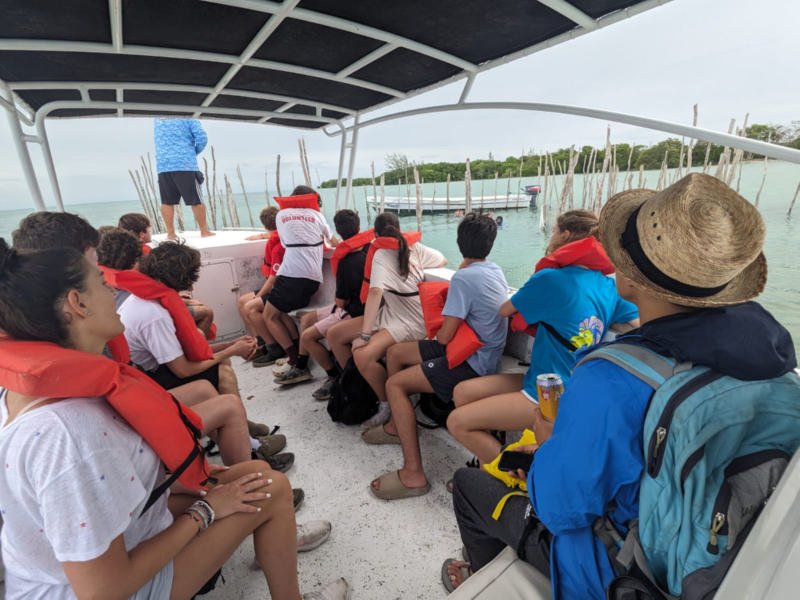
Photo: SACD
Guatemala
Objective: To support the management, conservation, protection, and restoration of natural ecosystems of the MAR and the social development of local communities by strengthening the business model of eight innovative enterprises, improve their impact acumen, and prepare them to access new, better markets and financing opportunities in 12+ months.
Progress to date:
- Eight businesses from the MAR region completed Alterna’s Cultivation Process successfully.
- Two of them were selected to compete in a pitch event to receive seed funding to enhance and strengthen their business. Cozumel Coral Reef Restoration Program was the winner.
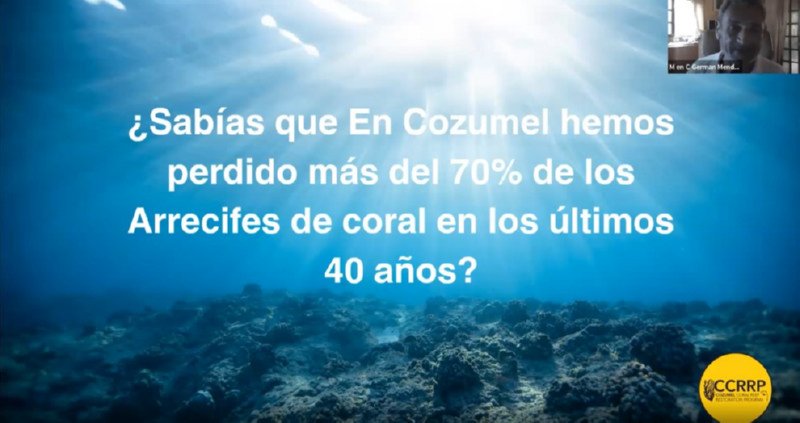
Photo: Alterna
Guatemala
- Support was provided for the development of a strategic retreat with collaborators from CONAP Northeast Regional Direction and Balam-Bajareque consortium in Izabal.
- As a result, an action plan was developed to allow the consortium to seek sustainability opportunities for the PNRD. The launch of this shared management model will take place in March 2024.
Photo: Kate Sutter
Belize
Objective: To enhance the effectiveness of the SACD Natural Resource Management Programme through capacity building, increasing enforcement outputs, and improving monitoring data analysis and interpretation that strengthens CBWS adaptive management strategies, supported by an updated sustainable fishery plan, to sustainably safeguard the natural resources of CBWS for current and future stakeholders of the MPA.
Progress to date:
- SACD staff salaries were covered.
- A total of 72 patrols were conducted, 12 infractions documented, which include gill nets confiscated, written warnings given and coastal development activities reported to the National Biodiversity Office for construction without permits.
- SACD developed monitoring activities: six bird surveys, nine manatee drone surveys, one aerial survey, 14 fish count assessment and water quality monitoring.
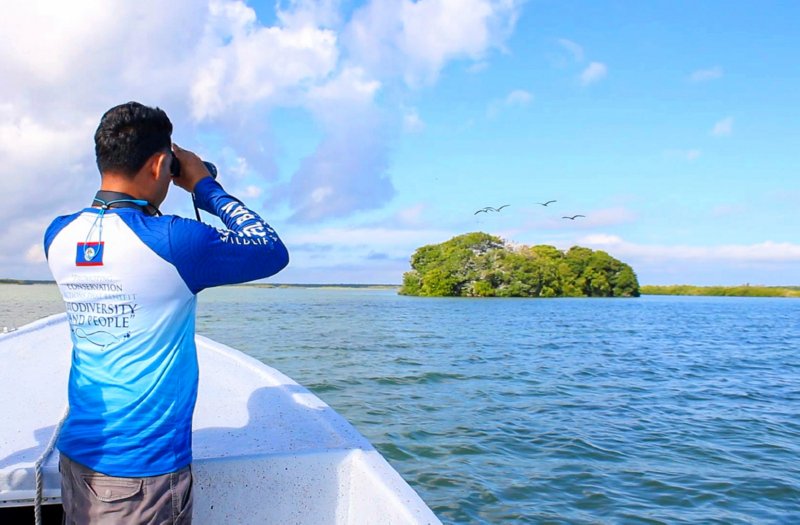
Photo: SACD

Photo: SACD
Belize
Objective: Characterization of FSA of Cayman Crown and provide initial management for Cayman Crown MPA in Belize.
Progress to date:
- In October, The Ministry of Blue Economy and Civil Aviation and TIDE signed a co-management agreement for the Sapodilla Cayes Marine Reserve (SCMR), including Cayman Crown. The agreement focuses on five critical areas for the effective management and expansion of services of the marine protected areas system over the next 10 years.
- TIDE ran knowledge-sharing sessions to enforce team capacities. Training included boat handling skills, aerial and underwater drone handling, utilization of SMART technology, greeting fisherfolks, and team building sessions with the Port Honduras Marine Reserve rangers.
- In December, Hunting Cay monitoring station was equipped with solar panel batteries, solar freezer and other supplies to effectively function.
Honduras
Objective: Support the rebuilding of MAR fish stocks by strengthening the protection and monitoring of a network of fish spawning aggregation sites as critical areas of the life cycle of these species.
Progress to date:
- Preliminary results of data analysis from hydrophone shows correlation with visual surveys for Yellowfin, Nassau, and Black groupers seen aggregating in March and April 2022.
- FSA monitoring preliminary results from data collected from 2020 to 2023 show that peak spawning aggregations of tiger grouper occur in March.
- Hydrophone and observation data continue to be collected, aggregations of Black grouper, Tiger grouper, Yellowfin grouper, and Nassau grouper were seen displaying all indirect spawning evidence.
Belize
Objective: Promote the recovery of fisheries in the Mesoamerican Reef region, by strengthening the network of protected spawning aggregation sites of commercial fish, as critical areas in the life cycle of these species. Gladden Spit Silk Cayes Marine Reserve (GSSCMR) has been identified as a key sentinel site in the network of fish spawning aggregation in the Mesoamerican Reef region.
Progress to date:
- In September 2023, monitoring equipment installed in 2021 at Gladden Spit Silk Cayes Marine Reserve (GSSCMR) was recovered. Data will be analyzed.
- FSA monitoring took place in December GSSCMR. Results include observations of Black groupers, Dog snappers, and Yellow snappers.
Guatemala
Objective: Provide management and zoning recommendations for the Cayman Crown and initial management funding for Cayman Crown with stakeholders in Guatemala.
Progress to date:
- Megafauna monitoring protocol implemented in November and December at Foundara, Cabo Tres Puntas and Cayman Crown sites. Species observed include Spotted eagle ray, Atlantic spotted dolphins and bottlenose dolphins.
- Inspection of seven boats and confiscation of one fishing gear during the two surveillance patrols in the Amatique Bay and adjacent zones in September, in collaboration with CONACAR and DIPESCA.
- The Diagnosis of the coastal marine zone of the Punta de Manabique Wildlife Refuge and the Cayman Crown no-take zone delivered to DIPESCA and CONAP.
- Two environmental education workshops in September involved 94 participants between the ages of 6 and 55, including students and fishers, at Barra Sarstún and El Naranjo, in Río Sarstun Multiple Use Area.
Cayman Crown
Objective: Generate a detailed map of the Cayman Crown area, conduct ecological characterization of coral reef and megafauna, and monitor reef health near or at sentinel sites to communicate results in report cards, Eco Audits, and social media.
Progress to date:
- From August 28 to September 1, 2023, reef health data was collected during a field expedition to Cayman Crown. Preliminary results show that the Reef Health Index (RHI) in 4 sites varied from fair (2.8) to critical (1.8), with some sites scoring poorly (2.5). A concerning decline trend of commercial fish biomass was observed across all sites, indicating increasing impact on the reefs. Despite this, one of the sites exhibited a high coral cover of 50.3%, and the rest of the sites with a good score signaling that the reef structure basis is there to increase the commercial and herbivorous fish biomass.
Photo: Marina Sánchez
- Ten hectares of mangroves in “El Playón” (Sian Ka’an Biosphere Reserve) were restored. This included dredging 200 meters of canal to maintain natural water flow and planting 850 mangrove seedlings in 85 dispersal centers. The project successfully increased mangrove cover from 0 to 25% in each center.
- The Restoration Brigade, comprising 15 members from the “Tres Reyes” and “X-Hazil” ejidos, led these efforts, raising awareness about mangrove conservation and providing temporary employment opportunities for the community.
- A training workshop for the 15 community leaders of the X-Hazil and Tres Reyes ejidos was held in November.

Photo: CINVESTAV
- Restoration of 502 meters of hydrological channels of the mangrove forest and reforestation activities conducted by planting 270 propagules in bamboo tubes over 100 m2 with a 60% survival rate.
- Monitoring activities in collaboration with SI included two permanent plots and three rapid transects completed in the adjacent healthy zones, and evaluation of thirty subplots in restoration sites. The site Laguna Grande has the highest mangrove density. Data from additional sampling is currently being analyzed.
- The project was presented in four communities of Río Sarstún Multipurpose Area.
- Fifteen community and six government representatives were trained. Seven community members participated in monitoring and restoration activities. A total of 34 youth participated in mangrove reforestation activities.
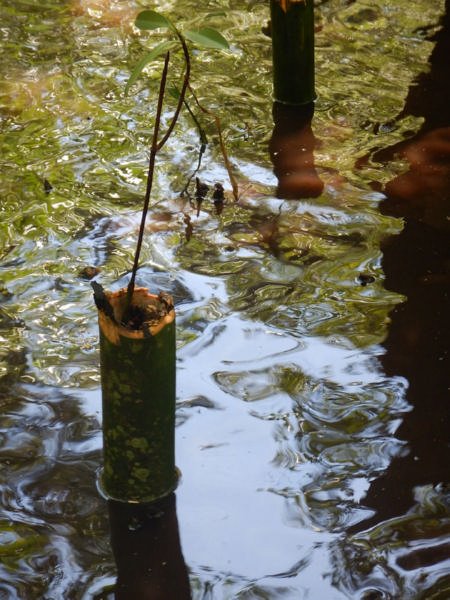
Photo: FUNDAECO
- With 104 participants, 4.46 hectares were reforested with 10,200 seedlings. 23,000 propagules were collected, and CEM has 9,000 mangrove plants in the nursery cared for by 45 people.
- In October, the third ecological monitoring took place using SI-donated equipment and training. Parameters included salinity, pH, redox, DBH and georeferencing in the Chamber Canal, Alvarado Lagoon in Puerto Cortés and PAMUCH.
- Two blue carbon transects were conducted, and sediment samples were sent to SI for further analysis. Data from these efforts is undergoing comparative analysis.
- To date, 16 people from CEM, the Environmental Department of Puerto Cortés, the Municipal Environmental Unit of Omoa, the Navy, fishermen, a university professor and volunteers have participated in mangrove and blue carbon training and monitoring.

Photo: CEM
Objective: Implement cost-effective insurance to cover hurricane risk to the MAR and enhance resilience of the local beneficiaries who depend on the reef for their livelihoods, food security, and protection from coastal hazards.
Progress to date:
- The insurance continues covering 11 sites for the term June 2023-May 2024. Feasibility studies for its replication and scaling up to other geographies and perils are being conducted in partnership with WTW. The programme has been highlighted as a case of success.
- Results and impacts were presented at the Climate Risk Insurance Course, at the Frankfurt School of Management and Finance; the partners workshop organized by AFCIA/UNDP; and, in the Latin American Climate Week, in the section: Innovative Finance Solutions for Coral Reef & Community Resilience in Latin America & the Caribbean.
Objective: Enhance institutional capacity to mitigate the impacts of hurricanes in coral reefs in the MAR.
Progress to date:
- On November 16th the “Regional Workshop for the Exchange of Experiences in Post-Storm Response Capacity to Mitigate the Impact of Hurricanes on Coral Reefs” was held virtually. A total of 101 participants from different sectors participated in the workshop including reef responders, members of the Response Coordinating Committees and representatives of NGOs and governmental institutions of all 4 countries of the MAR. The purpose of the workshop was to promote the exchange of knowledge and experiences among post-storm response groups in the MAR as well as strengthen collaborations between the Response Committees and reef responders.
Objective: Working in close collaboration with local, national and regional authorities and key partners, for their recommendations and support towards enhancing reef restoration and emergency response in the MAR.
Progress to date:
- RRI continues working closely with national and regional authorities in support of the MAR Insurance programme and the Emergency Fund. The financial sustainability strategy of the MAR Insurance programme was discussed with the Executive Secretary of COSEFIN and representatives of Dibio- SERNA at a virtual meeting held in September with the purpose of seeking funding sources for the continuation of the programme in Honduras.
Objective: To provide immediate and timely financing to reef sites that have been impacted by natural disasters or anthropogenic activities.
Progress to date:
- A total of 76 fragments of pillar corals were rescued and placed in an in situ nursery in the Banco Chinchorro Biosphere Reserve. The National Commission of Natural Protected Areas (CONANP) in collaboration with Natural Spaces and Sustainable Development A.C. (ENDESU) implemented this project to rescue pillar corals from Stony coral tissue loss disease (SCTLD). SCTLD has impacted the colonies of pillar corals throughout the MAR to the point to which they are now considered ecologically extinct.
Objective: Contribute to the protection of key reef sites through the improvement of channel markers and navigation routes in the MAR.
Progress to date:
- ZOLITUR in collaboration with BICA-Roatan has installed 15 sailing buoys in both Utila and Guanaja with the help of 7 community members trained through this project. A total of 20 buoys were also installed to demarcate a fisheries replenishment zone in Guanaja.
- In December, BICA-Roatan installed 10 sailing buoys in the area of French Cay, Roatan.
Mexico
Objective: Repopulate in a year, four reefs with coral species at risk to fully promote the rehabilitation of ecosystem services for the benefit of the Cozumel community, involving the active participation of key stakeholders in raising awareness and mitigation of impacts to the reef.
Final Results:
- Five planting campaigns of Acropora palmata (1,081 fragments) and Acropora cervicornis (369 fragments) were conducted across four reefs in Cozumel: Paraíso Norte (268 fragments), Paraíso Sur (403 fragments), La Palmata (410 fragments), and Palancar-Herradura (369 fragments).
- Five tourist developments were selected to identify the ecosystem services of the reef and prioritize actions to address the main reef issues identified, including: discourage illegal fishing practices, promote waste separation and recycling programs, create underwater interpretative trails at planting sites, manage seaweed, and develop environmental education programs.
- Project results were presented at the First Elk Horn Coral Festival with 35 participants.
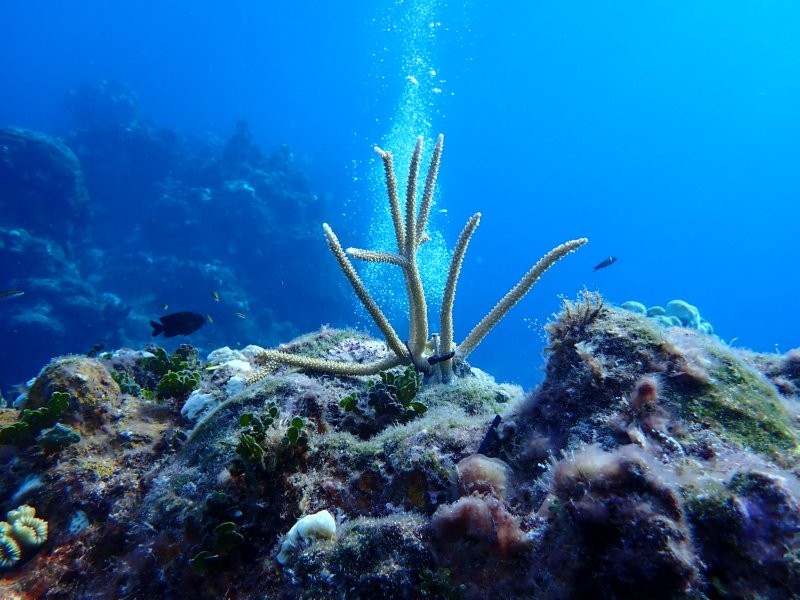
Photo: Marina Sánchez
Mexico
Objective: By the end of 2023, in synergy with regional and local stakeholders, the resilience of the reef is increased through novel techniques of massive coral repopulation, the efficiency of the restoration is evaluated through systematic monitoring and the organic vinculation of the local community is strengthened under a comprehensive strategy of regenerative tourism to ensure the sustainability of the project.
Progress to date:
- Bleaching monitoring was conducted, assessing 1,286 colonies across six sites. Of these, 70% exhibited partial or total bleaching, and 47% displayed paleness. The most affected species were Agaricia tenuifolia and agaricites.
- Planted colonies showed a monthly growth rate between 0.6 and 1 cm. Unfortunately, there was an increase in colony mortality across all four sites due to bleaching.
- Fifteen maintenance campaigns have been conducted on fragments suspended in line nurseries at four sites.
- Four advanced divers were invited to participate as a focal group in the restoration experience, and strengthen the regenerative tourism program in Akumal.

Photo: CEA
Mexico
Objective: To increase the adaptation and resilience of coral reefs and coastal communities in the Mesoamerican Reef through rehabilitation of reef sites and associated fauna.
Progress to date:
- A total of 13,916 corals were outplanted across sites in Cancun, Cozumel, Puerto Morelos, Mayakobá, Punta Maroma, Tulum, Mahahual and Xcalak.
- Three conferences, 25 talks and four mini-workshops were conducted to share information about corals (biology and ecology), the importance of coral reefs, threats to coral reefs, their work and results.
- Pre and post project evaluations were developed to measure increase in coral size classes and fish density, showing an average increase in size classes of 44% and fish density of 80ind/100m2.
- Material for the educational program “Underwater Explorers” was developed, to share basic coral reef concepts, coral’s importance, their restoration program and techniques used.
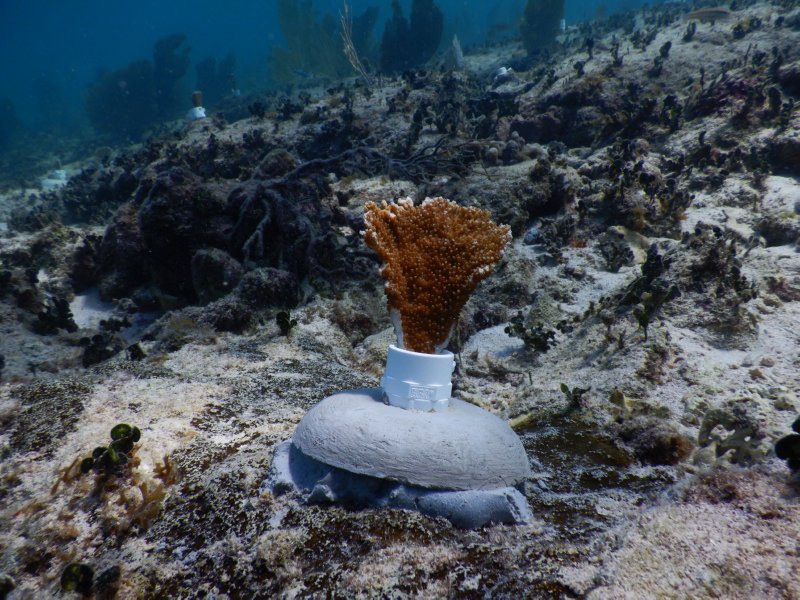
Photo: Oceanus
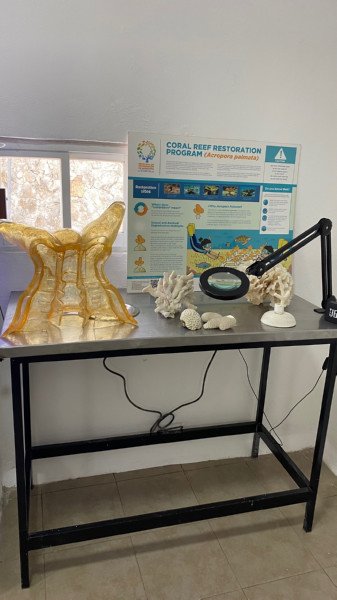
Photo: Oceanus
Photo: Fragments of Hope
The Belize Marine Fund (BMF) supports projects through two programmatic windows 1) the Targeted Grants Program and 2) the Small Grants Program. The projects supported by these programs have been guided by those priority areas of focus established in the BMF’s Strategic Plan and in consultation with the BMF Steering Committee.
Objective: To raise national and international awareness, through an original documentary film, of the efforts being undertaken by women leaders from various walks of life to preserve Belize’s Barrier Reef Reserve System and to inspire both local and international audiences to take action to support these efforts.
Progress to date:
- Completion of a Rough-Cut video file that builds on the Assembly Cut by incorporating visual footage recorded, in part, during the filming trip was completed and shared with MAR Fund in November 2023. Completion of a Final Cut video of the documentary that builds on the Rough Cut by incorporating music, color grading, and visual effects, will be available for private screenings by the end of March 2024.
Photo: Marina Sánchez
Honduras
Objective: To strengthen the management of drinking water and basic sanitation in the Crawfish Rock community.
Progress to date:
- The Regulatory Entity for Drinking Water and Sanitation Services (ERSAP, in Spanish) visited Roatán and had two meetings with the CrawFish Rock waterboard to discuss the new water fee.
- 50 surveys for the socio-economic census of the CrawFish Rock community have been completed.
- Educational material has been developed to promote the proper use of drinking water, including 50 posters, 60 puzzles and one radio spot.
- To date, 6 septic tanks have been cleaned in CrawFish Rock.
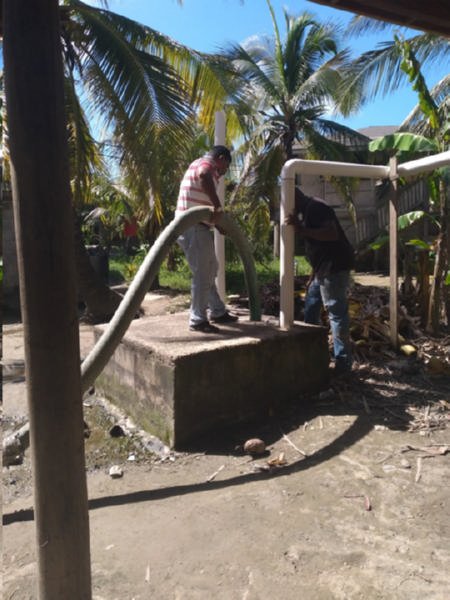
Photo: BICA – Roatan
Photo: Robert Charland
MAR+Invest is a blended finance mechanism with strong monitoring and evaluation of impacts, business acceleration and a capacity building program that aims to enable conditions for a sustainable ocean-based economy in the MAR. It will invest in market-based initiatives that make a positive contribution to the health and resilience of the coral reef ecosystems and communities of the Mesoamerican Reef.
- During the Build & Connect Program (February to November, 2023) 100 hours of training and mentoring sessions were completed, covering topics such as entrepreneurship, business and finance, impact measurement, conflict resolution and negotiation, storytelling, and transformative leadership. Sixteen leaders successfully completed the program, with a total of 14 projects.
- Six projects were selected to participate in the acceleration mentorship program facilitated by New Ventures.Testimonials from the participants of the Build & Connect Program 2023:“The greatest value of my learning was being able to generate and develop the context of how to build and monitor a productive business model, and know the processes of consolidating it and putting it into practice.” – Baruch Figueroa Zavala“Everything was very valuable, but I think that something invaluable that I took with me as a great learning experience was that personal change that I had during the program, through knowing myself better in terms of my capabilities and tools for Leadership. And something very important for me is to have had this change of conception to address the use and management of nature from a business perspective, through sustainable actions.” – Claudia Padilla“To see the business as such, being a biologist and working in an NGO, it has been hard for me to see the laboratory as a business without thinking about the conflicts of interest that there may be. Through the program, we were able to develop the business and see it as a tool to continue meeting our objectives.” – Gisselle Brady
- The MAR+Invest Acceleration Programme, implemented from June to December 2023, was successfully completed with eight ventures focused on sustainable tourism, water monitoring, the management of natural protected areas, and solutions to address Sargassum.
- Participants received personalized mentoring, group workshops on business and impact topics, sessions with the New Ventures mentor network, finance sessions, and networking opportunities during the program.
- On December 6th, 2023, New Ventures hosted the virtual closing event of the first MAR+Invest Acceleration Programme. During the event, entrepreneurs shared their experiences, highlighting the challenges, successes, and lessons learned during the duration of the program. They mentioned that the Acceleration Programme provided them with a structured framework that validated their ventures and served as a support system.
- Four projects (Natoure, Thalasso, BioPlaster, Aquosmic) have received guidance from New Ventures to establish financial connections with potential investors.
- Two projects are in the process of applying for a loan through MAR+Invest.

Photo: Antal Borcsok
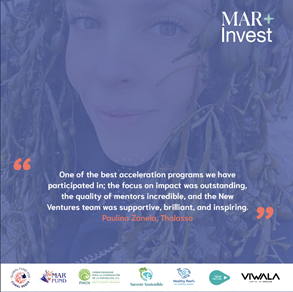
Photo: Antal Borcsok
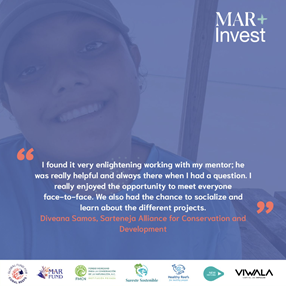
Photo: Antal Borcsok
- The training program implemented by GOAL, focusing on good fishing practices for responsible fishing, as well as the handling and processing of fishery products, is being carried out, so far benefiting a total of 321 fishermen and women. At the same time, the training process in business management skills and market access guidelines has begun, reaching 12 fishermen so far.
- Regarding fishermen associations, GOAL has completed 16 diagnoses. This has provided a comprehensive vision of their business needs and challenges.
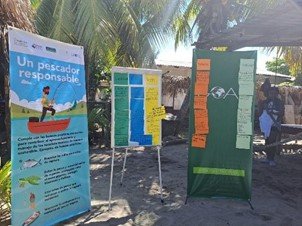
Photo: GOAL
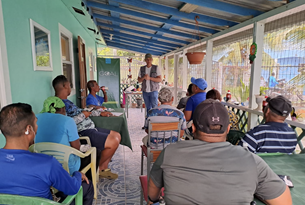
Photo: GOAL
- A Research and Development consultancy was carried out in collaboration with HRI and Instituto Mexicano de Investigación en Pesca y Acuacultura, to develop the King Crab Aquaculture Manual, which defines the improved production method for breeding King Crab in the MAR. The manual encompasses key aspects such as production costs, crab life stages, maintenance, and feeding protocols tailored to each stage, along with a comprehensive description of the life cycle in captivity.
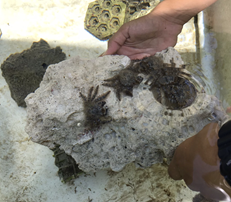

Photo: Sara Gutiérrez
Photo: Kevin Novelo
The work carried out in 2023 has been made possible by the support of donors.
We are grateful for their trust and continued generosity.
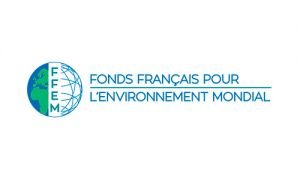

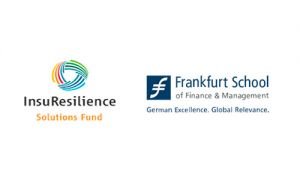
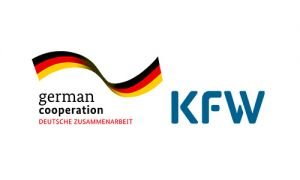

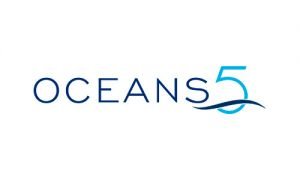
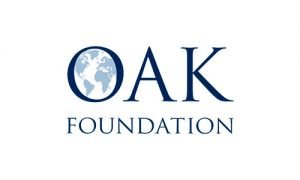
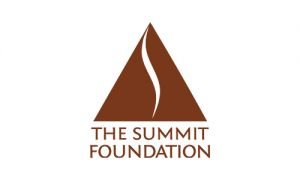
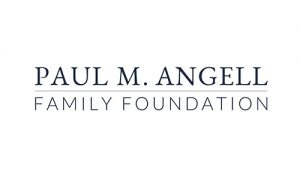


Photo: Gabriela Ochoa – Fundación Albatros
Followers on Facebook
Followers on Instagram
Followers on Twitter
Views on YouTube
Followers on LinkedIn
November 2023
- Belize Audubon Society’s Reef Protectors Program: Empowering Youths as Champions of Marine Conservation
- MAR Fund presentó el seguro paramétrico para arrecifes en la Semana del Clima de América Latina y el Caribe 2023
- Press Release: Virtual Regional Workshop for the Exchange of Experiences in Post-Storm Response Capacity to Mitigate the Impact of Hurricanes on Coral Reefs
Webinars
- South Water Caye Marine Reserve Community Stewardship, Mangrove Awareness and Nursery Pilot Project
- The use of hydrophones for monitoring fish reproductive aggregations
- The fight against illegal fishing, through the training of fishing communities in Quintana Roo
- Mesoamerican Connectivity Exercise (ECOME, in Spanish): connectivity network for monitoring reef fish postlarvae

Address:
22 avenida 0-59, Zona 15 Vista Hermosa II
Guatemala, C.A. 01015
Phone: +(502) 2369-3188
Phone: +(502) 2369-1978
Email: info@marfund.org
Website: https://marfund.org/

